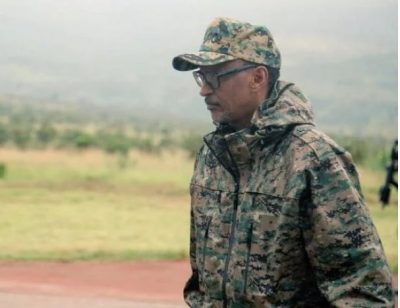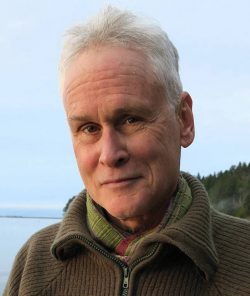#837 The global frame of Deni Béchard
My Favourite Crime: Essays and Journalism from Around the World
by Deni Ellis Béchard
Vancouver: Talonbooks, 2019
$24.95 / 9781772012323
Reviewed by Howard Macdonald Stewart
*

Deni Béchard’s My Favourite Crime is a powerful collection of writing. The book’s cover blurb, not something I usually put much faith in, contains much truth: this really is an “engaging collection of essays” and the writing “compelling.” I’m less convinced by their claim that the book’s thirty pieces are “united by a recurring consideration of how writing helps us transform our understanding….” Actually, I’m not even sure what that means. Such ambiguity is notably absent between the covers, where Béchard’s writing is crisp and clear.
Though I didn’t perceive any unifying leitmotif, I still found My Favourite Crime a rewarding read. As an assembly of family history, reports and analysis from around the world, and essays about writing, the book is so diverse and independent-minded that it is almost fissiparous. In retrospect, I believe the book’s multiple personalities and topics enhanced my satisfaction with it. I was never bored.
On my first run through the wide-ranging table of contents to My Favourite Crime, I was particularly bemused by the promised last section, twenty pages of short essays about writing and why writers write. What was this doing here? These essays turned out to be the high point of the collection for me. They even had this old cynic scribbling things like “amazing,” “inspiring,” and “encouraging” in the margins. But there was no obvious link between them and the stories that preceded them other than the author himself.

Indeed, for me, Béchard himself is the glue that binds the material together. We start with a fascinating series of stories about him and his father, “Essays on Crime and Family.” A colourful Québecois émigré who hated the dull and repressive Québec of Maurice Duplessis that had spawned him, Béchard senior ran afoul of the law repeatedly around North America. His crime capers, from Montreal to California, were often better stories than money spinners. The author spent most of his life “in a state of almost perpetual conflict” with this difficult father figure yet, he says, he also owes him a debt of gratitude. (Do difficult fathers always have to die before their sons reach the gratitude stage?). Though dad died penniless and deep in debt, Béchard junior recognises that his wayward old man passed on a precious legacy: not simply a profound love of stories but a “relentless will to find my way, to test boundaries and takes risks.” While dad pursued this approach through a life of crime and violence, the author does it with his writing.
Béchard’s musings about his father and his family’s Québecois roots help us understand the kind of writer who puts together an eclectic collection of stories like these. Béchard introduces us to people around the world who, like the author himself, push boundaries or push back against convention and other kinds of oppression. The pieces in two of the three parts after the family introduction bounce from country to country: an American soldier standing up for the rights of transgender service people; the emotions, prejudice and cynicism that swirl around Congolese children accused of sorcery; brave female activists standing up to the systemic violence faced by Indian women; street artists in Havana finding ways to express themselves and their outrage in the face of the dull-witted censorship still in place in post-Fidel Cuba. And so on.
While the writing is polished throughout these parts, the depth and quality of the analysis is uneven. Seeking Peace in Medellin’s House of Memory goes beneath the surface of things in describing a Medellin museum that strives to illuminate Colombia’s long and complicated decades of armed conflict, and to facilitate what Béchard calls “Colombians’ fraught, ongoing negotiation between the past and present.”

The preceding story, “Words of Exile,” is a dispatch from Rwanda, two decades after that country’s paroxysm of mass murder. In contrast with the Colombian sketch, the short Rwandan piece is curiously devoid of historical perspective. Béchard tells us that he got the impression in Rwanda’s capital, Kigali, that “the horrific events of 1994 had overshadowed the country’s history before and since.” That is to say, the author was oblivious to the extent to which the government of Paul Kagamé, whose invading Tutsi émigré army consolidated their control over Rwanda in the wake of the massacres, has worked to ensure this historic vacuum, going so far as to eliminate the teaching of history in Rwandan schools.

Béchard ought to have done more background research on Rwanda. He could have started with Columbia University’s Mahmood Mamdani, whose magisterial study, When Victims Become Killers, unravels the complex diversity of histories and relationships in Africa’s crowded western Great Lakes region, of which Rwanda is the epicentre.[1] As it is, Béchard short piece on Rwanda is curiously and atypically flat and uninformative. Had he read Mamdani, for example, Béchard would probably not have described Kinyarwanda as just “one of the country’s official languages.” English was a language learned by people raised in refugee camps in neighbouring English-speaking countries and brought to Rwanda recently in the wake of Kagamé’s invading army. After Kagamé’s army restored the ancien regime of Rwanda’s colonial and pre-colonial times, English became the country’s new language of official business. French had previously played this role in the Hutu majority government Kagamé pushed out.
Kinyarwanda, on the other hand, is the one language of all Rwandans, the mother tongue spoken by traditional Tutsi gentry and Hutu peasant alike, and by very few others. This linguistic unity in Rwanda is one reason why the country’s mysteries can seem impenetrable and why it is so inaccurate to characterise Rwanda’s tribulations — as most journalists inevitably do — as “tribal conflict.” Tutsis and Hutus are not separate tribes. They are scarcely even different ethnicities but much more like different social classes. Short on understanding of Rwanda’s complex history, Béchard’s story feels a little like disaster tourism, which is not his style.
My quibble about the short Rwandan dispatch contrasts with my appreciation of the forty pages Béchard devotes to his Dispatches from Afghanistan. Here again, he manages to get beneath the surface. Along the way, he disposes of those “many expats [who have] built their reputations and careers simply by living in Afghanistan….” Some of these people, Bechard says, “arrived jobless, with no experience in war zones or with the types of work available there. They attached themselves to random projects, biding time until their presence gave them the credentials they needed to be hired. Infused with the authority of their avatars, they carried themselves with the disheveled, world weary gravitas of celebrity explorers.” Wow.

Béchard goes on to introduce us to some of the real victims and heroes of that country’s endless war, including the diverse men and women of the Afghan National Army and the remarkably courageous women of the Afghan Women’s National Cycling Team. Taken together, Béchard’s Afghan dispatches don’t begin to explicate that country’s tortured history — that would take volumes — but they do give he reader a nuanced feel for this place where the Americans (and their allies) chose to hang on, as they did in Viet Nam, long after it was clear they’d lost.
I won’t say anything more about those last twenty pages on writing. Buy the book. I hadn’t bought anything by Deni Ellis Béchard before reviewing My Favourite Crime but I certainly will in the future, nsh’Allah.

*

Howard Macdonald Stewart is author of Views of the Salish Sea: One Hundred and Fifty Years of Change around the Strait of Georgia (Harbour Publishing, 2017). An historical geographer and semi-retired international consultant whose work has taken him to more than seventy countries since the 1970s, Howard has reviewed books for The Ormsby Review and BC Studies. His memoir of a youthful bicycle trip down the Danube with the war hero and debonair cyclist Cornelius Burke, “Bumbling down the Danube,” was published in The Ormsby Review (no. 21 Sept.-Oct. 2016), and his memoir, “The year of the bicycle: 1973,” followed in Ormsby no. 788 April 2, 2020. He has also written a popular Remembrance Day piece, “Why the Red Poppies Matter,” in The Ormsby Review no. 420, November 11, 2018, as well as many book reviews. He is now writing an insider’s view of his four decades on the road that followed his perambulations of 1973, notionally titled Around the World on Someone Else’s Dime: Confessions of an International Worker. He has lived on Denman Island, off and on, for more than thirty years.
*
The Ormsby Review. More Books. More Reviews. More Often.
Publisher and Editor: Richard Mackie
The Ormsby Review is a journal service for in-depth coverage of B.C. books and authors. The Advisory Board consists of Jean Barman, Robin Fisher, Cole Harris, Wade Davis, Hugh Johnston, Patricia Roy, David Stouck, and Graeme Wynn. Scholarly Patron: SFU Graduate Liberal Studies. Honorary Patron: Yosef Wosk. Provincial Government Patron since September 2018: Creative BC
“Only connect.” – E.M. Forster
Endnotes:
[1] Mahmood Mamdani. 2001. When Victims Become Killers: Colonialism, Nativism and the Genocide in Rwanda. Princeton, NJ: Princeton University Press.
2 comments on “#837 The global frame of Deni Béchard”